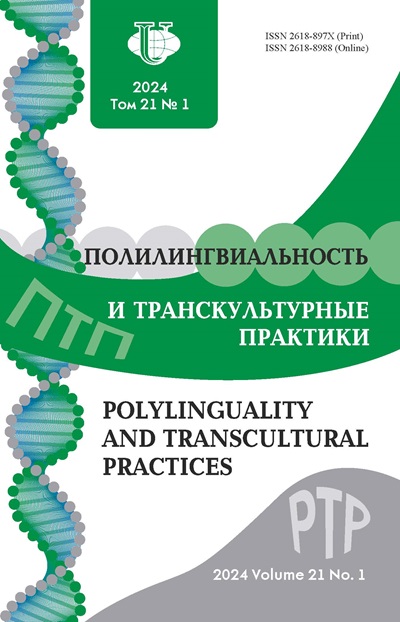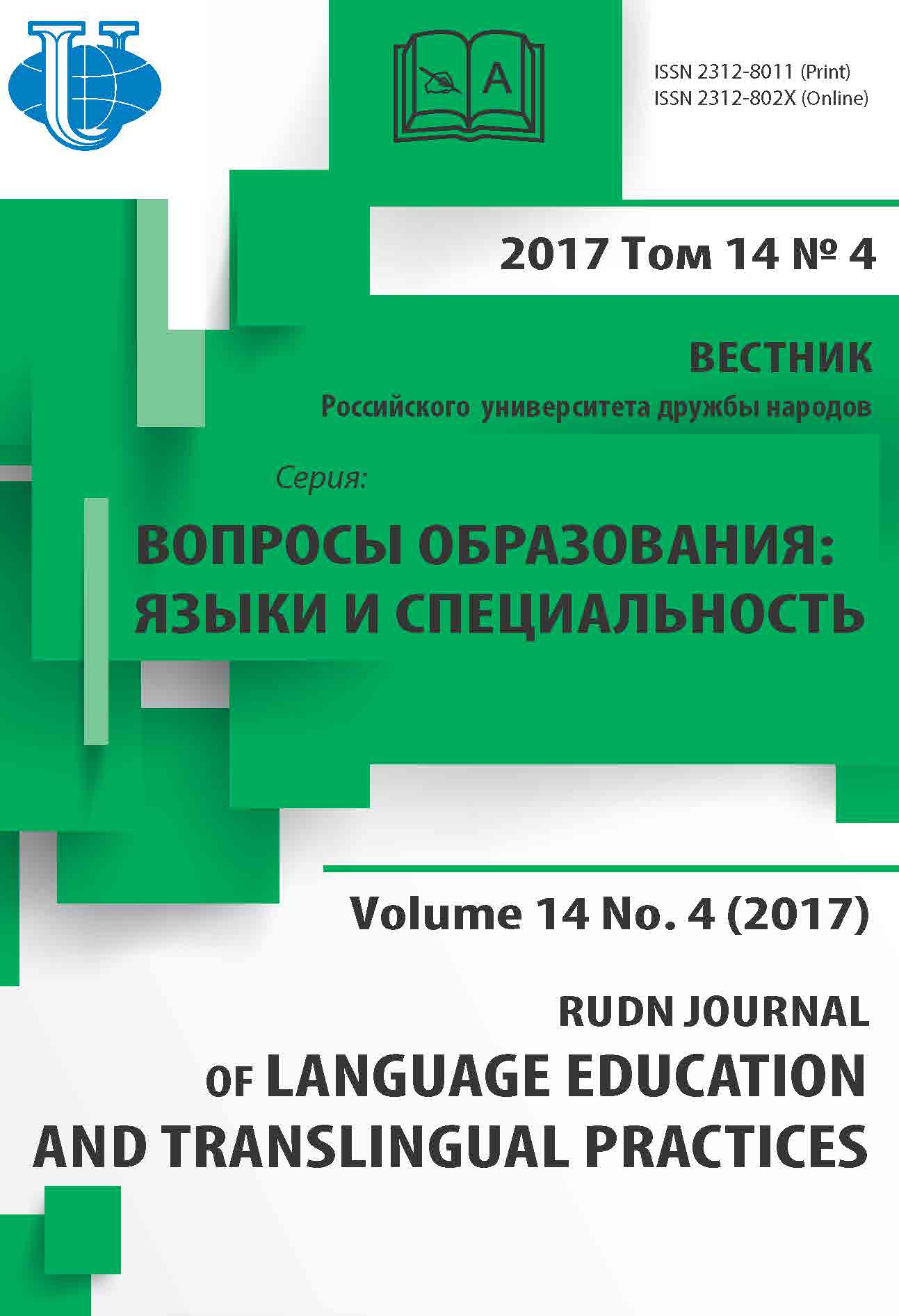SPECIAL LEXIS AND PROVERBS OF THE RUSSIAN LANGUAGE IN THE TURKIC-SPEAKING AUDIENCE
- Authors: Sinyachkin VP1, Dvoryashina VS2
-
Affiliations:
- Peoples’ Friendship University of Russia
- Uzbek State University of World Languages
- Issue: Vol 14, No 4 (2017)
- Pages: 785-797
- Section: Articles
- URL: https://journals.rudn.ru/polylinguality/article/view/17624
- DOI: https://doi.org/10.22363/2312-8011-2017-14-4-785-796
Cite item
Full Text
Abstract
The present article deals with problems of teaching professional terminology in connection with learning of proverbs. The process of teaching Russian language is broadly analyzed, which takes into consideration the problem of learning non-native language in connection with the culture of its bearers on the material of special words and proverbs. Attention is paid to the analysis of set of exercises suggested by the authors of the monographs, where the aim of learning special terminology is reached through the proverbial fund of the Russian language based on the differences in concepts of health and hygiene in three languages (Uzbek and Kazakh as native, and Russian as non-native). Based on the analysis of the content of theoretical and practical value of the monograph, some recommendations are given for writing course books to students.
About the authors
V P Sinyachkin
Peoples’ Friendship University of Russia
Author for correspondence.
Email: word@list.ru
Sinyachkin Vladimir Pavlovich is a Doctor in Philology, Professor, the Head of the Department of Russian Language and Intercultural Communication, Peoples’ Friendship University of Russia (RUDN University).
6 Miklukho-Maklaya st., Moscow, 117198, Russian FederationV S Dvoryashina
Uzbek State University of World Languages
Email: terra-dvs@mail.ru
Dvoryashina Victoria Sergeevna is a Senior Teacher of the Department of the Russian Language and Literature, Uzbek State University of World Languages.
quarter G-9А, 21-а Kichik Halka Yuli st., Tashkent, 100138, Republic of UzbekistanReferences
- Saparova N.B. Lingvodidakticheskie osnovy obuchenija studentov-kazahov nominacentricheskim poslovicam russkogo jazyka [The linguodidactic foundation of teaching the Kazakh students to nomenocentric proverbs of the Russian language]: diss. … kand. ped. nauk. Tashkent, 2001. 168 s.
- Bakirov P.U. Semantika i struktura nominacentricheskih poslovic (na materiale russkogo, uzbekskogo i kazahskogo jazykov) [The Semantics and structure of nomenocentric proverbs (on the material of the Russian, Uzbek and Kazakh languages]. Tashkent: Fan, 2006. 298 s.
- Azimov Je.G., Shhukin A.N. Novyj slovar’ metodicheskih terminov i ponjatij (Teorija i praktika obuchenija jazykam) [New Dictionary of methodological terms and notions (theory and practice of teaching languages)]. M.: IKAR, 2009.
- Dzhusupov M. Lingvodidaktika i metodika v polinauchnoj sisteme jazykovogo obrazovanija [Linguodidactics and methodology in multiscientific system of the linguistic education]. Russkij jazyk za rubezhom. 2009. № 2. S. 26—32.
- Dzhusupov M. Obrazovatel’nye statusy russkogo jazyka v sovremennom mire [Special lexis and proverbs (linguokontrastive and methodological aspects)]. Russkij jazyk za rubezhom. 2012. № 6. S. 15—21.
- Dzhusupov M. Sociolingvistika, lingvodidaktika i metodika (vzaimosvjaz’ i vzaimoobuslovlennost’) [Sociolinguistics, linguodidactics and methodology (interconnection and interdependence)]. Russkij jazyk za rubezhom. 2012. № 1. S. 22—28.
- Dzhusupov M., Alibekova K.E., Mazhitaeva Sh. Special’naja leksika i poslovicy (lingvokontrastivnye i metodicheskie aspekty) [Special lexis and proverbs]. Tashkent: “MERIYUS”, 2013. 138 s.
- Permjakov G.L. Osnovy strukturnoj paremiologii [The foundation of structural paremiology]. M.: Vostochnaja literatura, 1988. 311 s.
- Dmitrieva O.A. Kul’turno-jazykovaja harakteristika poslovic i aforizmov [The Linguocultural description of proverbs and aphorisms]: avtoref. diss. … kand. filol. nauk. Volgograd: Peremena, 1997. 18 s.
- Maslova V.A. Lingvokul’turologija [The Linguoculturology]. M.: Akademija, 2001. 211 s.















